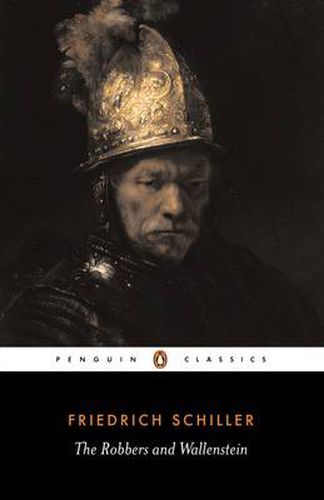Readings Newsletter
Become a Readings Member to make your shopping experience even easier.
Sign in or sign up for free!
You’re not far away from qualifying for FREE standard shipping within Australia
You’ve qualified for FREE standard shipping within Australia
The cart is loading…






This modern translation of Schiller’s work captures the elegance and forceful rhetoric of the original plays
Friedrich Schiller (1759-1805) was one of the most influential of all playwrights, the author of deeply moving dramas that explored human fears, desires and ideals. Written at the age of twenty-one, The Robbers was his first play. A passionate consideration of liberty, fraternity and deep betrayal, it quickly established his fame throughout Germany and wider Europe. Wallenstein, produced nineteen years later, is regarded as Schiller’s masterpiece- a deeply moving exploration of a flawed general’s struggle to bring the Thirty Years War to an end against the will of his Emperor. Depicting the deep corruption caused by constant fighting between Protestants and Catholics, it is at once a meditation on the unbounded possible strength of humanity, and a tragic recognition of what can happen when men allow themselves to be weak.
$9.00 standard shipping within Australia
FREE standard shipping within Australia for orders over $100.00
Express & International shipping calculated at checkout
Stock availability can be subject to change without notice. We recommend calling the shop or contacting our online team to check availability of low stock items. Please see our Shopping Online page for more details.
This modern translation of Schiller’s work captures the elegance and forceful rhetoric of the original plays
Friedrich Schiller (1759-1805) was one of the most influential of all playwrights, the author of deeply moving dramas that explored human fears, desires and ideals. Written at the age of twenty-one, The Robbers was his first play. A passionate consideration of liberty, fraternity and deep betrayal, it quickly established his fame throughout Germany and wider Europe. Wallenstein, produced nineteen years later, is regarded as Schiller’s masterpiece- a deeply moving exploration of a flawed general’s struggle to bring the Thirty Years War to an end against the will of his Emperor. Depicting the deep corruption caused by constant fighting between Protestants and Catholics, it is at once a meditation on the unbounded possible strength of humanity, and a tragic recognition of what can happen when men allow themselves to be weak.